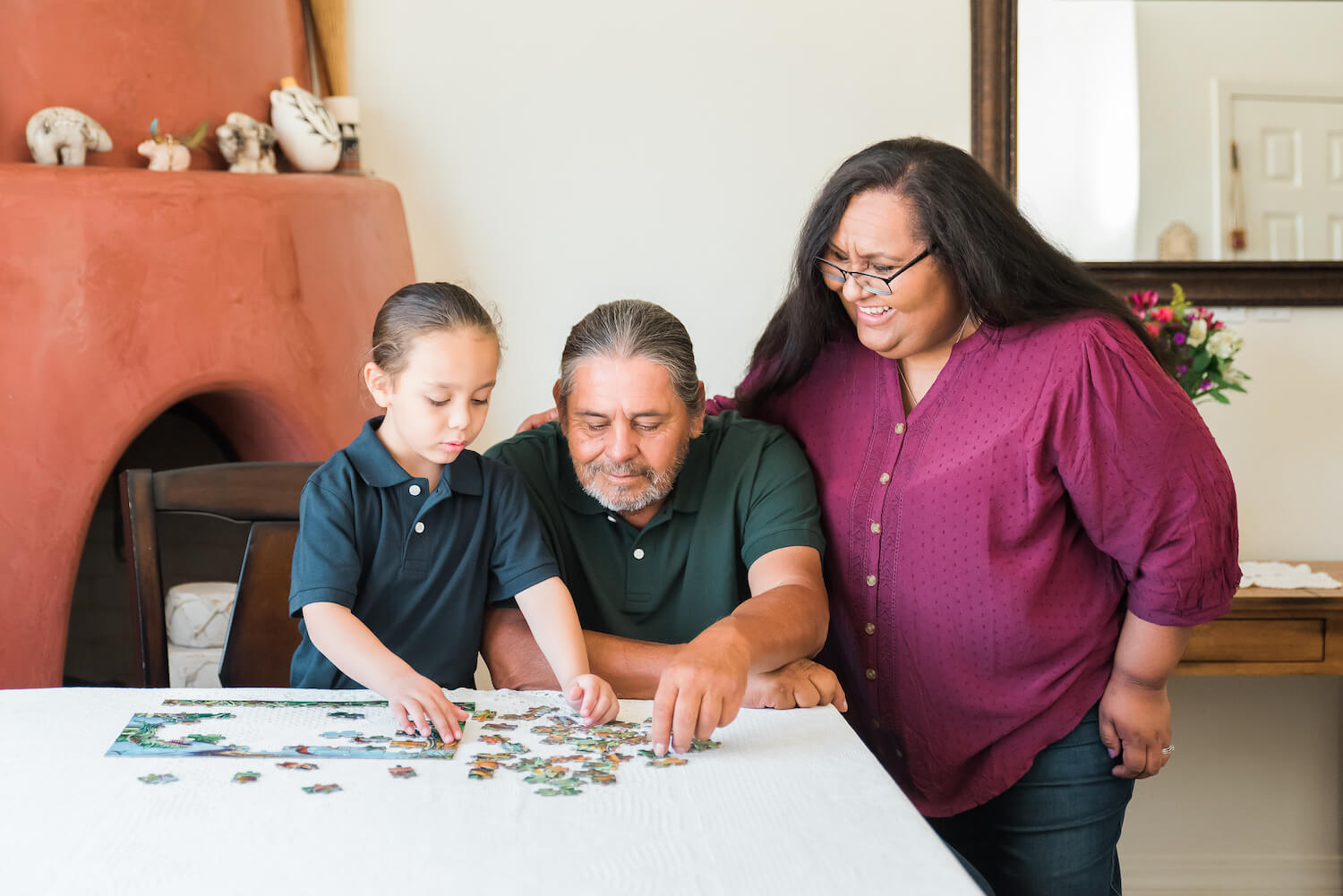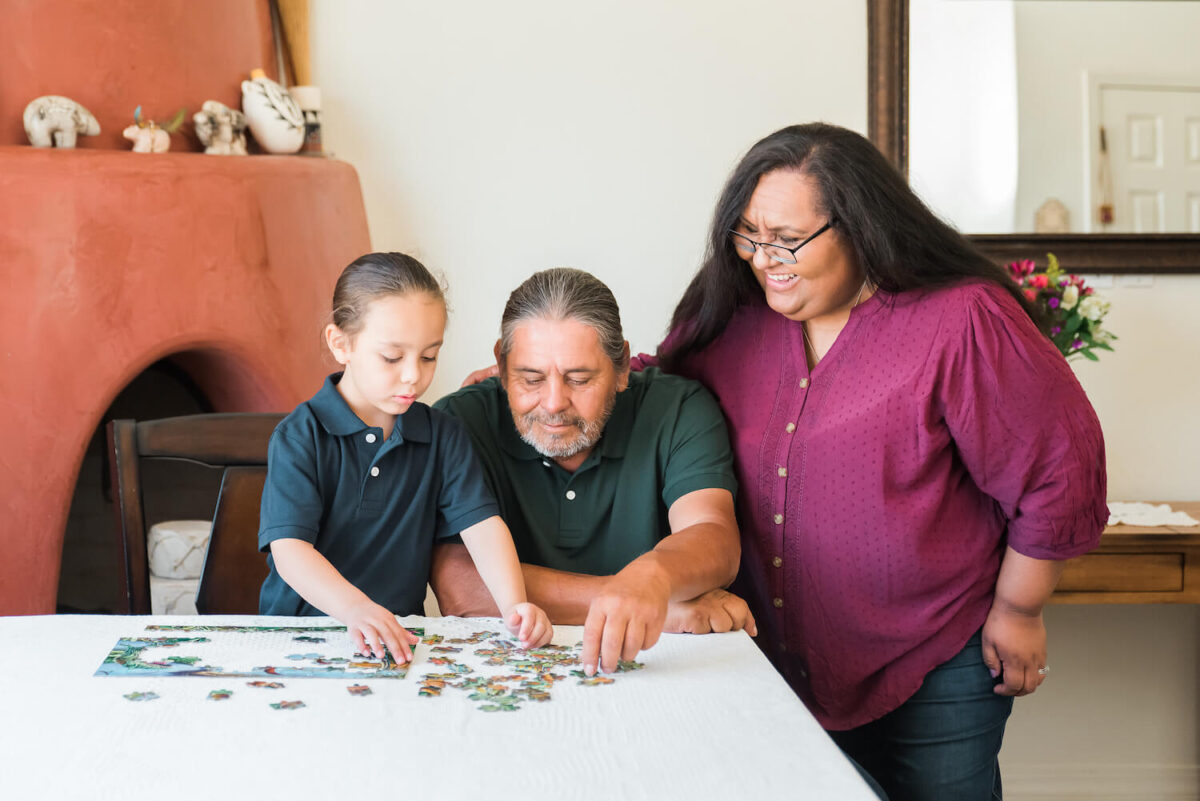
Want to Be a Great Parent? Go for a Walk Without Your Kids
When you become a parent or caregiver, everything changes. Once upon a time, you were a person who did interesting adult activities. Maybe you baked pastries or went rock climbing, or were extremely knowledgeable about the history of telenovelas. Now, your main hobby is checking your toddler’s mouth to make sure nothing is in there that shouldn’t be.
Having kids is full of joy, but it also comes with stress, bone-deep fatigue, and sometimes even feelings of loss about the person you used to be before children. These feelings affect everyone, but can be especially hard if you are already dealing with other responsibilities or worries.
According to experts, parents and caregivers often try to ignore those stresses and challenges, focusing on their children’s needs instead of their own. The problem with that strategy? Your children (even babies!) can sense when you are stressed or burned out. That stress makes it harder to enjoy the fun parts of having children and to delight in their smiles and milestones—which is what your kids really need from you. Taking breaks from your children is an act of love, especially if you come back from those breaks feeling refreshed and ready to play. So, where to start? We’ve got some ideas!
Assemble Your Team
Taking breaks from your children is easier said than done. One of the most stressful things about raising young children is that they are always there. Loving you. And needing things. And chewing on things. And crying. But also giggling and cuddling. It’s a lot, and it can feel unrelenting. What to do? Try to gather a team of helpers. If you’ve ever heard the saying, “it takes a village to raise a child,” then you know humans were never meant to do this all alone. If you have family or friends nearby who offer to help, take them up on it. If you have a partner, schedule time for each of you to be away from the kids and do things that make you feel good and fresh.
And because you live in New Mexico (excellent choice!) your team can also include dedicated professionals, whose job is to support families and whose services are often FREE. Need an adult to talk to about your experiences raising children? Get yourself a home visitor, whose whole job is to support you and your child as part of your team. Feeling worried about your child’s development? Get yourself a team of friendly experts through FIT, so you don’t have to do it all alone. Do you need time to take a class or build a new job skill, but can’t with your children around? Child Care Assistance and PreK are both options for accessing free early care and education for your children. Not only can this give you the time you need, but it connects you to a community of care and education professionals who will get to know your child well. These professionals will talk with you about your child’s potty training progress with interest and enthusiasm that no one else ever will. And when you feel supported, your child will, too.
Go Outside
OK, you’ve assembled your team. You’ve scheduled in some time for yourself while your children are at PreK or with a family member. Now, what? Experts point to time outside as a great way to boost your mood and support your health. And luckily, you live in New Mexico (again, great choice!) where the weather is mild and sunny for much of the year. This can be as simple as taking a short walk, and should be something that sounds enjoyable to you. If you hate running, don’t run. If you’re too tired to even think about exercise, napping outside is also a great option.
Eat Some Chile
Food is one of life’s great joys. But sometimes as caregivers, we stop cooking and eating the kinds of meals we most enjoy. Going to restaurants becomes harder, and so does finding the time to cook. Plus, few things are more discouraging than laboring over a batch of tamales, only to watch your toddler recoil from the food in disgust. As part of caring for yourself, make sure you’re eating some foods that bring you joy. If you like to cook, try to set aside times to prepare (and eat!) the foods you love. Plus, eating spicy foods may boost your mood, so you’ll be extra happy later, and better able to cope with the fact that your toddler has learned to climb onto the table.
Sleep
One of the great challenges of young children is that they interrupt our sleep. From nighttime feedings to nighttime potty training to preschoolers who wake up at 5 a.m. for no clear reason, the early years are not great for our sleeping routines. You often can’t control that, but you can try to prioritize sleep and get it when you can. In particular, caregivers sometimes stay up late after their children are asleep, to try to grab some precious alone time. That’s fine if you’re using the time for something that brings you joy, but take notice if you find that you’re just spending that last hour reading the internet and feeling sad. Instead, consider just going to bed earlier. Sleep is basically the world’s most powerful force for health and wellbeing, so get it whenever you can.
Breathe
Yes, we’re always breathing. But experts have found that breathing slowly and noticing our breathing can help us stay calm and in control, especially when things are challenging. On its own, deep breathing isn’t going to make you feel more supported as a caregiver or more refreshed as a human. But it’s a good one to have in your pocket for days when you’re on your own with no time for a walk or a good meal or a nap. Plus, this sets a great example for young children, who are learning how to notice and calm their own emotions. You don’t have to hide that you’re doing it, either. It can be good for children to see that adults are still working on this skill. You could say something like, “Daddy is going to take a couple of long, deep breaths, and then we can talk about why there’s a layer of syrup on the floor.”
Other Strategies
Taking care of yourself looks different for everyone, so don’t limit yourself to the strategies on this list. Other ideas include:
- Scheduling time to talk to other adults. If an in-person meet-up is hard to schedule, set up times to call a friend.
- Focusing on priorities and letting less important items wait. Your kids are better off with a healthy caregiver and a messy house than the other way around.
- Giving yourself credit for all you’ve done. At the end of a day with kids, it’s easy to feel like you haven’t accomplished anything and the house is messier than when you started. Make a list of all the things you did that kept your children fed and safe, and give yourself credit for a busy and productive day.
Professional Help
If you find that you are consistently stressed or are worried about your mental health, consider finding a counselor or therapist. These professionals can help you become the caregiver you want to be. If you think you might be having a mental health crisis, call 988, or you can call 1-833-TLC-MAMA, which is a special resource number for people experiencing postpartum depression. Caregiving is challenging, and you don’t have it alone.

